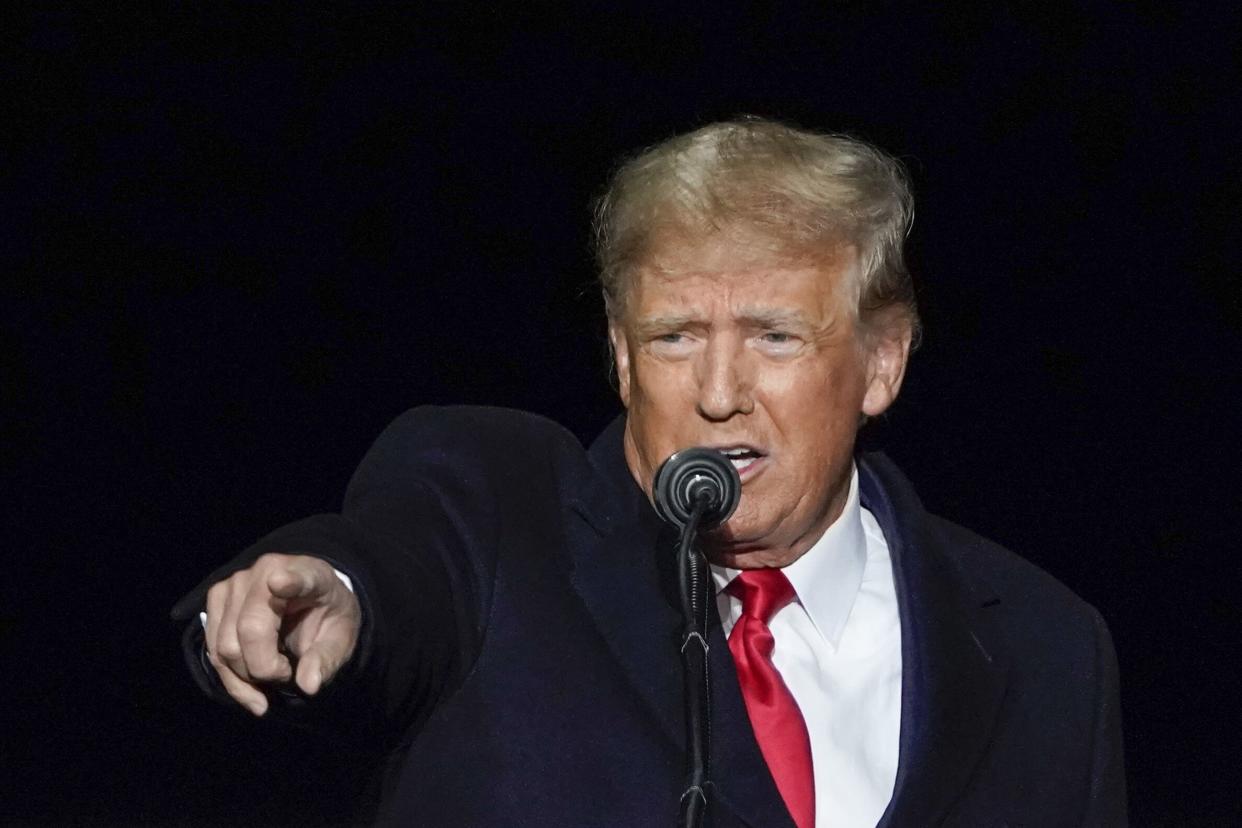Democrats’ Iowa Caucus Chaos Prompts Republican Bill That Could Help Trump

- Oops!Something went wrong.Please try again later.
- Oops!Something went wrong.Please try again later.
(Bloomberg) -- Attempts by Iowa Democrats to fix their broken caucus system have set off a partisan squabble over election rules that could ultimately impact the closely watched Republican presidential contest next year — possibly to the benefit of former President Donald Trump.
Most Read from Bloomberg
In Morgan Stanley CEO Race, Wealth Boss Emerges as One to Watch
Merck-Moderna Vaccine Helps Keep Patients Free From Skin Cancer
Fuel That Powers the Global Economy Is Flashing Recession Signs
A $300,000 Salary Feels Like $100,000 in The Priciest US Cities
Republican lawmakers in Iowa introduced a bill this week to prohibit the use of a mail-in presidential caucuses, which Democrats have floated in the aftermath of the party’s disastrous 2020 caucuses.
Also included in the bill is a 70-day registration requirement for participating in the party caucuses, which Republicans say would protect their caucus from cross-over meddling if Democrats no longer caucus in person. But that proposal, introduced in the Iowa legislature by a senior adviser to Trump’s Iowa campaign, could also help Trump by limiting the ability of independents to participate.
It’s just one example of how Democratic changes to their presidential nomination timeline could reverberate across both parties’ primaries, shaking up the 2024 calendar and influencing the campaign for the Republican nomination.
New Hampshire, which zealously guards its first-in-the-nation presidential primary, has said it would respond by moving ahead of Iowa, arguing that a mail-in caucus is really a primary.
Under a five-decade-old agreement between the states, Iowa has gone first because it uses caucuses — party-run events that gather voters together in a room for discussion and debate before voting — and not secret-ballot elections.
“Any change of the caucus format in Iowa that moves in the direction of a primary election, including the use of mail-in or absentee ballots, will trigger New Hampshire’s law protecting our first presidential primary position,” New Hampshire Secretary of State David Scanlan told Republicans.
Democrats are trying to avoid a replay of the 2020 caucuses, which were marred by technical glitches, reporting delays and incorrect results. Former South Bend, Indiana Mayor Pete Buttigieg won the caucuses, with second-place finisher Bernie Sanders challenging the results. Joe Biden came in fourth.
Biden regained momentum after winning South Carolina that year. Now president, Biden has used his influence over the party to shake up the calendar — elevating primary elections in South Carolina, Nevada, Georgia and Michigan ahead of the Iowa caucuses, which had been a key early contest since President Jimmy Carter’s victory there in 1976.
But primary election rules are ultimately set by state governments, and in some cases the Democrats’ calendar puts the party in conflict with state laws.
“What the DNC has done at the national level is absolutely going to have implications for the calendar on both the Democratic and the Republican side,” said Josh Putnam, founder of Frontloading HQ, which tracks delegate selection rules for party presidential nominations.
The proposed 70-day registration requirement in Iowa, for example, would exclude “casual caucus-goers” and leave only hard-line partisans determining the outcome. “We don’t know yet, but those folks are more likely to support — and have been supporting — the former president,” Putnam said.
Hogwash, said Iowa Republican Party Chairman Jeff Kaufmann.
“The Democrats throw out the word Trump and hope that will find its way into the story,” he said Friday. “Let me tell you, this hurts candidates like Trump and candidates like Nikki Haley,” he said, noting that Trump received significant crossover support in 2016.
Democratic Iowa State Representative Jennifer Konfrst said the Republican bill was “completely politics.”
Iowa Democrats say their proposal for a mail-in caucus — which has not yet been formalized in its delegate selection plan to the national party — would allow more shift-workers, young parents and disabled people to participate.
Most Read from Bloomberg Businessweek
Banking Crises Are Preventable, But Human Nature Gets in the Way
Women Tackle Football With a Full-Contact League of Their Own
©2023 Bloomberg L.P.


